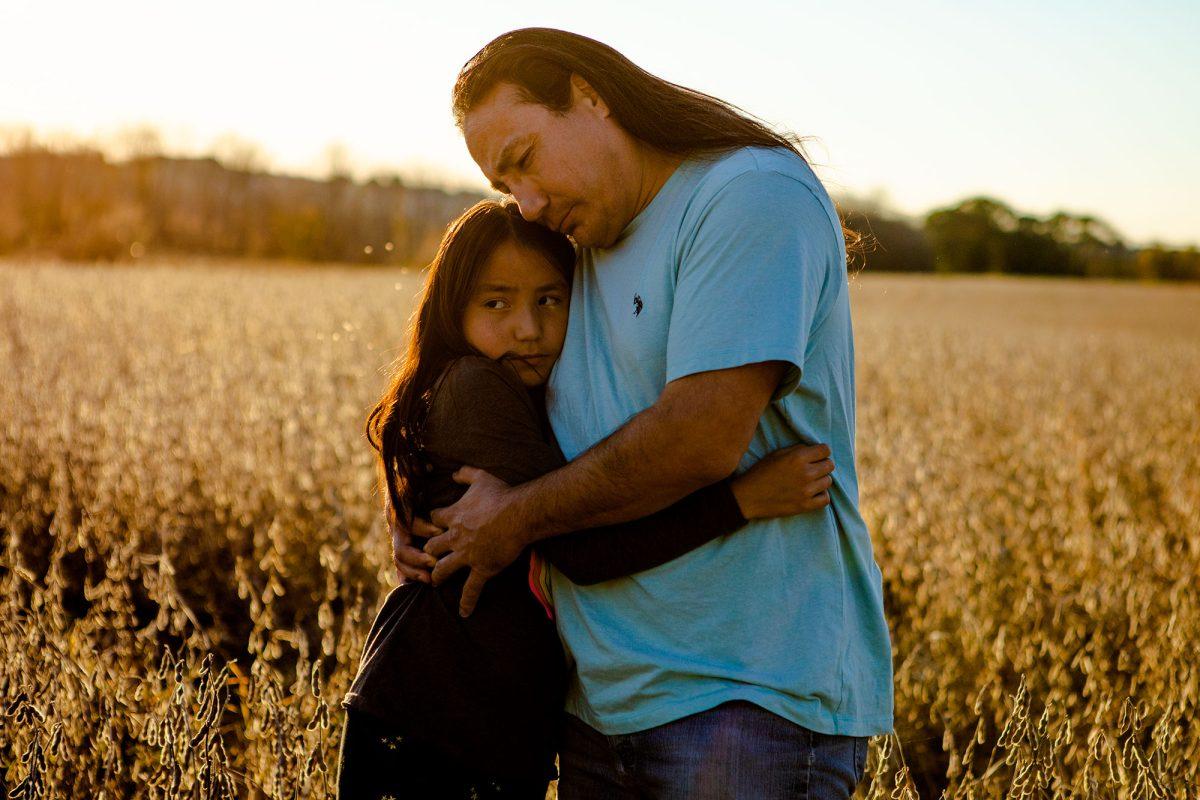Jonathan Olshefski, a Rowan University professor whose film “QUEST” received Emmy nominations for Best Documentary and Best Social Issue Documentary, recently received a major grant from JustFilms, a subsidiary of the prestigious Ford Foundation, to support his next project – a multi-generational story about a Native American family.
Olshefski is a multi-talented individual who juggles the duties of an acclaimed filmmaker and college professor. Olshefski has made a huge influence in both fields, leaving a lasting impression on students, colleagues and viewers alike thanks to his passion for both filmmaking and teaching. Olshefski, who possesses a wealth of experience and expertise, is a great inspiration to everyone around him, constantly pushing the boundaries of creativity and education.
Olshefski began his filmmaking career as a teenager, making skate videos with his pals and then moved on to experimental video, new media and still photography in college. Still, photography led to photojournalism-style photo essays, which led to Olshefki’s first documentary “QUEST.”
“I don’t seek out the stories I tell. It comes to me usually by chance encounters so who knows where I will end up next,” said Olshefski.
Olshefski spent more than ten years filming “QUEST,” which follows the lives of an African American family from North Philadelphia, in the true-life, cinema verité approach. “QUEST” premiered at the Sundance Film Festival in 2017 and has since gained critical accolades at film festivals across the United States.
Olshefski and a team of collaborators are currently editing his second feature-length documentary, tentatively titled “Without Arrows,” which is situated between Philadelphia and South Dakota’s huge Lakota Sioux Nation. His most recent film production allowed him to learn new things along the road and learn from any mistakes he made in the past.
The story is about a man returning home after being away for a long time and later struggling to reconnect with family and community. He hopes audiences can see themselves in the story and that this experience creates new opportunities for connection and partnership. Olshefski has been working on “Without Arrows” for almost a decade.
“I have learned to be patient and play the long game. It is important to focus on making incremental steps without getting sidetracked by arbitrary deadlines. The best film is worth waiting for and there is no reason to rush things — the film will let you know when it is ready,” said Olshefski.
Making a film is a complex and difficult process that involves a unique blend of creativity, technical expertise and business savvy. Olshefski sees several problems in the films he creates. He films his own material and has committed many filmmaking errors. However, the worst part, he admits, is not recognizing that he missed pressing record on his camera or audio recorder when critical things are happening.
“This has happened several times and it is always painful, but I have to mourn the loss and move forward while keeping the broader picture in mind,” Olshefski said.
For each director, the process of writing and developing a film can be divided into crucial stages, each with its own set of obstacles and considerations. “Without Arrows” is a documentary, so the writing happens in the edit, as Olshefski describes it. Olshefski collaborated with co-director Elizabeth Day and editors Leya Hale and Ellen Knechel on this project.
“The easiest part of filming is being with people that I like and appreciate. I spent 10 years filming with the Raineys and 12 years with the Fiddlers — I couldn’t do that if I didn’t enjoy being with them,” said Olshefski.
“Without Arrows” is about a Native American family. Representing Native American culture in the media is a difficult and delicate matter and it is the obligation of filmmakers and media artists to ensure that Native American culture is appropriately and respectfully shown. This necessitates a thorough study and appreciation of Native American history, traditions and values, as well as a determination to avoid preconceptions and clichés. Because Olshefski’s documentary focuses on a Native family, it is critical that he authentically reflects them and amplifies their voices.
“It’s about the team,” said Olshefski. ” I am collaborating on this film with Native and Non-native filmmakers. We work hard to have strong relationships so that we can have difficult conversations. I listen to my Native collaborators and we are striving to tell the story through a Native lens. I think the film will be all the richer for having all of our fingerprints on it.”
It is worth noting that Olshefski teaches new media and documentary filmmaking at the Ric Edelman College of Communication and Creative Arts. Olshefski’s main desire is for students and viewers to connect with the individuals he films, to see themselves in the tales he tells and to be motivated to engage in deeper and more meaningful ways.
“I try to normalize the struggle. Making any kind of media is hard and it takes time. You will make mistakes. You will experience years of uncertainty. This is all normal. Know why you want to make films and know what films you want to make,” Olshefski said. “It makes the sacrifices and confronting painful mistakes feel worth it. Keep moving forward one step at a time… You have to believe in yourself first. There are no shortcuts.”
You can learn more about the “Without Arrows” movie project at their website www.withoutarrows.com and keep up with Olshefski to learn more about him and his filmmaking journey at olshefski.org.
For questions/comments about this story email [email protected] or tweet @TheWhitOnline.























































































































































!["Working with [Dr. Lynch] is always a learning experience for me. She is a treasure,” said Thomas. - Staff Writer / Kacie Scibilia](https://thewhitonline.com/wp-content/uploads/2025/04/choir-1-1200x694.jpg)








































